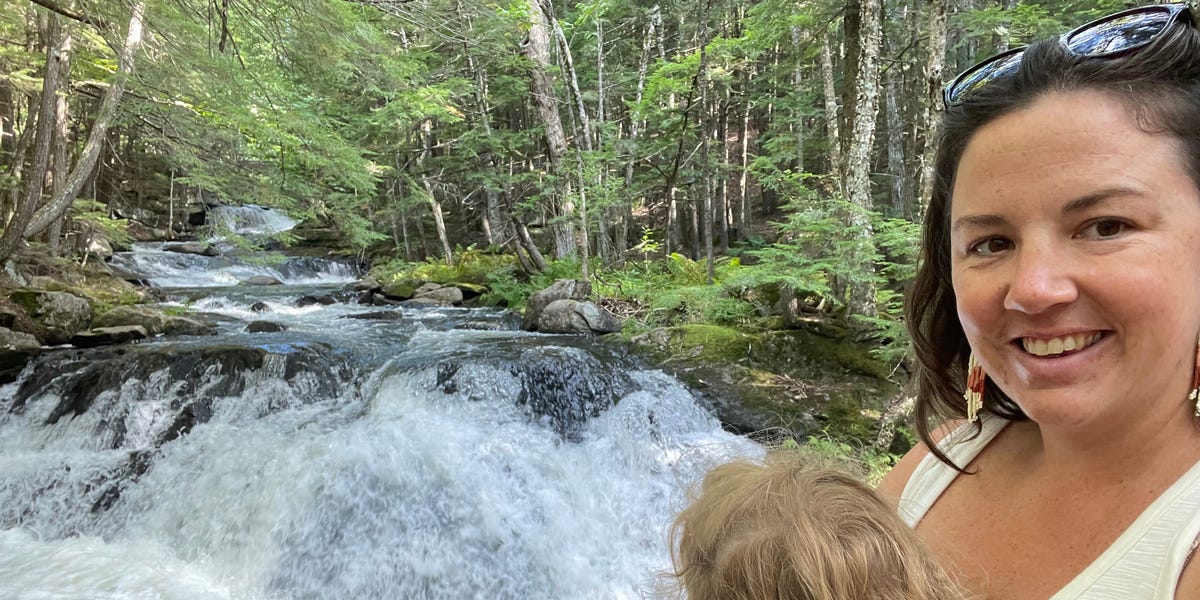
Last winter my daughter became interested in gymnastics. She watched tutorials on YouTube and practiced moves herself while I hoped her interest might wane. Instead, it intensified, and all she wanted for her sixth birthday was gymnastics lessons. The only problem was that the nearest gymnastics studio was 43 minutes from our house.When I first had kids a decade ago, I was living in a Boston suburb, the type of place where you could probably find a gymnastics studio within biking distance of home. But before my second was born, my family moved to rural New Hampshire for my husband’s job. We landed in a city of about 60,000 people, and a few years later we went more remote, landing in our town of 1,500.The town we live in doesn’t even have one stoplight. Before we moved here, I used to drive through and say, “It’s just so beautiful, but who could live way out here?” The kids’ school (a town over) is 20 minutes from home, while the grocery store is 25. When the kids inevitably break a bone during their adventures, we need to drive 45 minutes to the hospital. This week, I’m spending 90 minutes in the car each day so that my daughter can go to gymnastics camp.I was worried about moving rural but enticed by natureI was apprehensive about moving rural when we first made the transition. I wondered about access to kids’ activities and communities for me. If I was making a pros and cons list, I’m not sure I would have taken the plunge, but my husband’s new job was a thumb on the scale, so we decided to give it a try.
The midsize town of 60,000 felt like a strange middle ground. There were grocery stores, a Walmart, and the smallest T.J. Maxx I’d ever seen, but there were few restaurants and fewer community events like live music, writing groups, or even playgroups. I had small-town challenges without small-town charm.Yet I absolutely adored the access to nature. There were hiking trails everywhere along mountain streams. I spent summer days canoeing the river that divides New Hampshire and Vermont, then running the trails at a local mountain, and winter days cross-country skiing and sledding.My life feels more relaxed hereAfter three years of living in that town, going even more rural felt like an easy choice. Our house is now a five-minute walk from a 75-mile trail loop over four of New Hampshire’s peaks. We can swim or kayak at four different lakes that are within a 10-minute drive, and we have two ski mountains close by.Being immersed in nature is by far my favorite part of living rurally. We see moose on our road at least once a year, and my whole family loves watching the seasonal changes on the bog in our backyard.But there are other perks, too. Our small town has a very close community made up equally of people who grew up here and transplants like us. It took a few years to break into that network, especially since we moved just before the pandemic, but now I feel like I belong.The cost of property here is much lower than in the suburbs. That has a trickle-down impact on everything in our lives: Because our housing costs are relatively low, my husband and I can work fewer hours and spend more time with our girls. Our life feels very relaxed in a way I don’t think it would in Massachusetts, and I think that makes me a better parent.I try to offset the downsides of where we liveThere are lots of little downsides to where we live: the long drives, bears in the dumpster, learning to live with well water and a septic system, and the fact that my kids have no neighborhood to ride their bikes around.But the biggest concern by far is the lack of diversity. My town is about 86% white (which includes my family). We’re lucky to have family and friends who have different racial and cultural backgrounds. Still, I know that’s not the same as having the girls immersed daily in a multicultural environment.Smaller inconveniences are more in my control. My kids didn’t choose to live in the middle of nowhere, and I don’t want it to hold them back. If they show a keen interest in activities, I’ll drive them, sometimes carpooling with other parents and sometimes working in my car while they do a camp or class far from home.Nowhere is the perfect place to raise kids, but for now I know our little house in the woods is the best choice I can make for my family.






